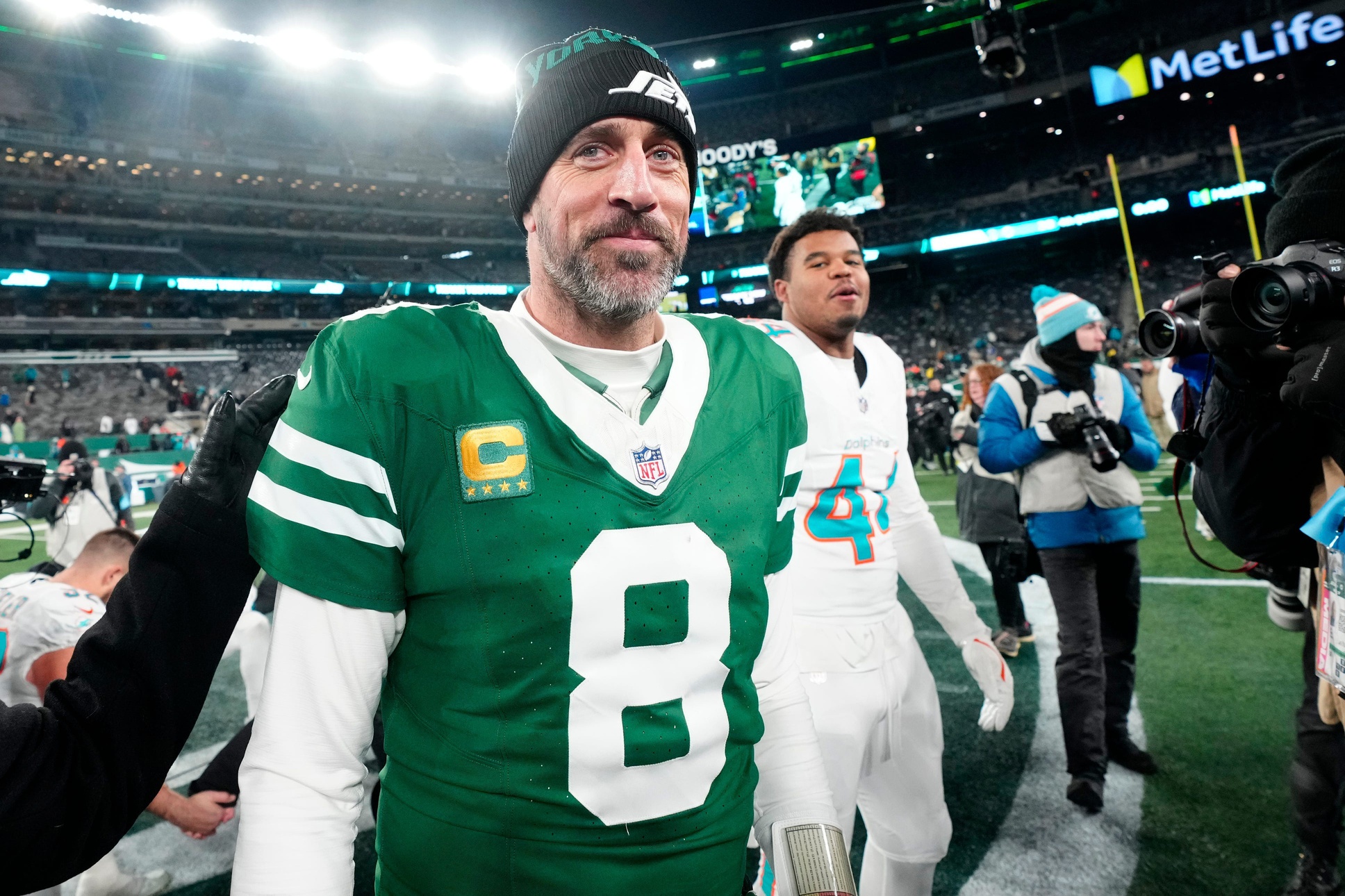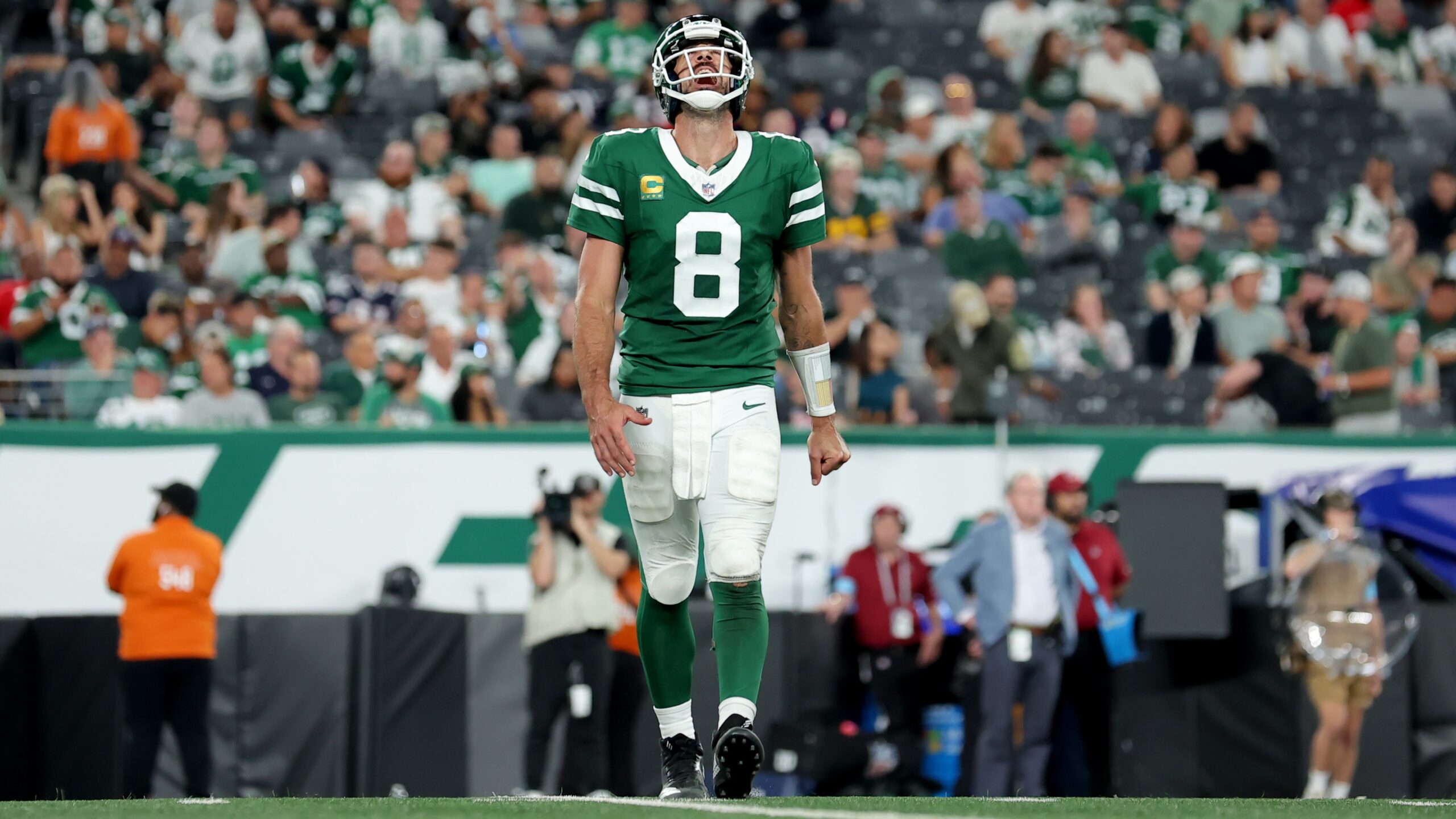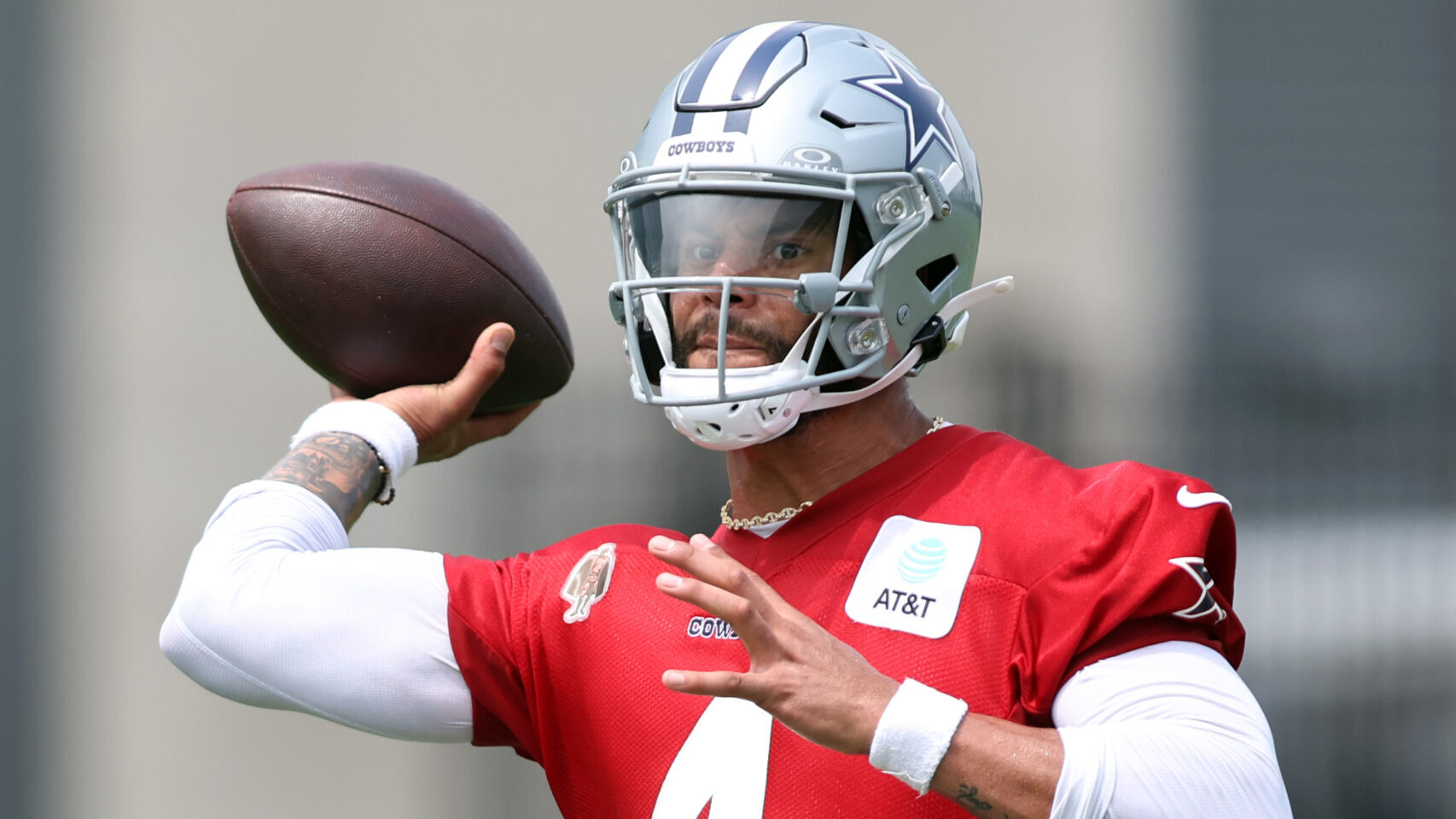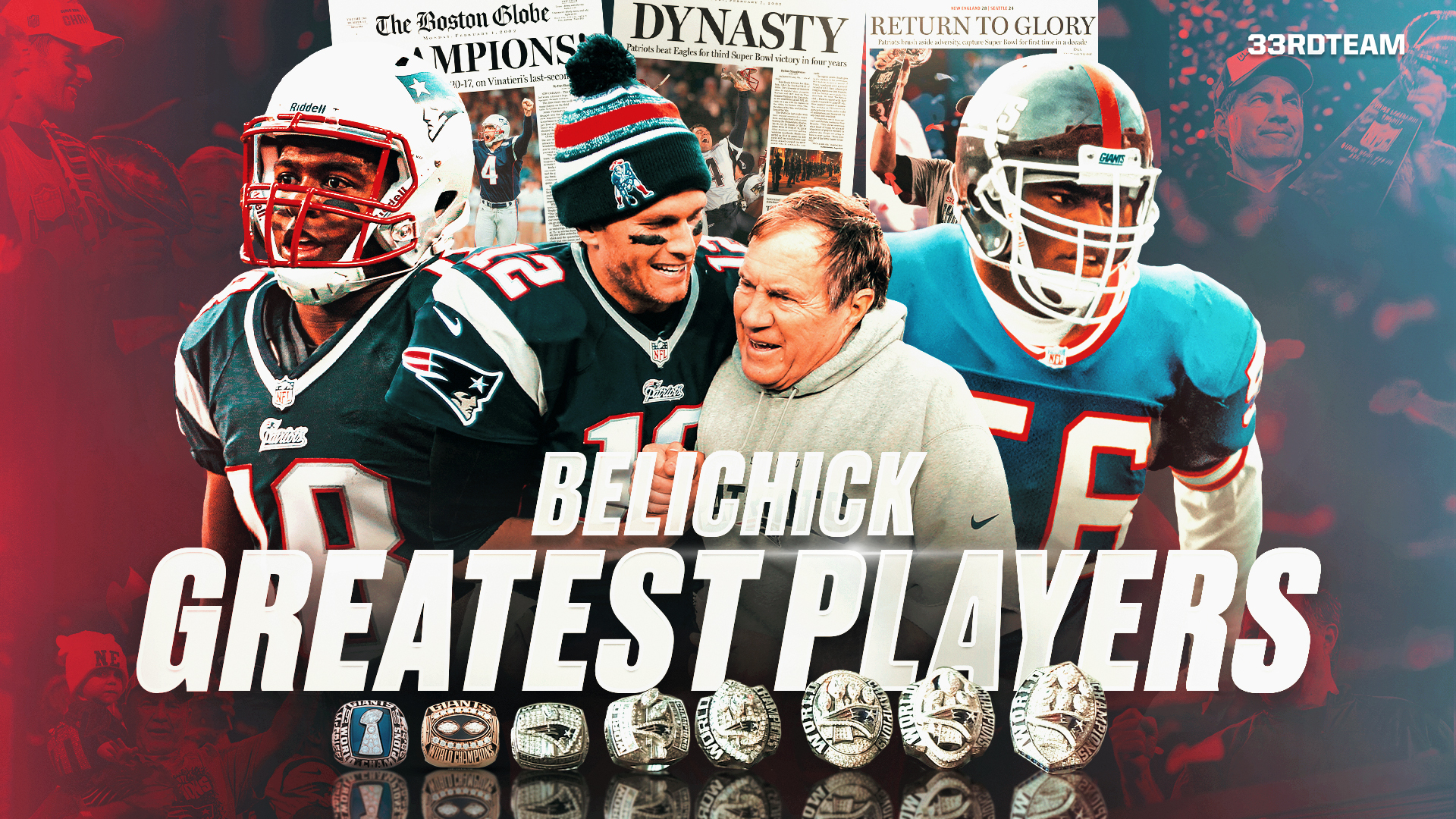Analysis
8/4/23
5 min read
Viewing Jonathan Taylor Situation Through CBA Casts It Differently

Indianapolis Colts running back Jonathan Taylor is unhappy.
With one season left on his contract, he wants two things. First, a new contract. Second, the new contract reflects his and his fellow running backs’ desire for larger monetary value than the free-agent market dictates.
Naturally, this has become a media story at a time when substantive NFL news is in short supply. Colts owner Jim Irsay (my boss for 14 years) made certain statements about the issue that just as naturally ramped up media interest. In the aftermath, predictably, Taylor requested a trade from the Colts, and here we stand.
Since Taylor is still recovering from the ankle surgery he underwent in January, he is not yet 100 percent ready and is on the physically unable to perform (PUP) list. The ankle on which he had the surgery bothered him for all of last season. Courageously, he played hurt and did not have a typically great season. Additionally, he has been a featured running back with a heavy workload during his NFL and collegiate career.
I will address Irsay’s comments later in this article since they are tangential to the issues here.
>> READ: Finding Taylor's Trade Value
Situation Illustrates a Common Tactic
When I put on my general manager hat to analyze this case, it is a garden variety attempt by an agent to use the media to extract a revision or extension of a valid existing contract. Under the collective bargaining agreement between the NFL and the NFL Players Association, Taylor has no legal right to a revision of his contract. The CBA has the force of federal law.
That same agreement provides for fines of $50,000 per day for any player with an existing contract who holds out. The NFL and the NFLPA negotiated that penalty in good faith. The league gave the union concessions in other areas to secure it. The Colts likewise paid Taylor a significant guaranteed signing bonus as an incentive to sign the existing contract.
As a practical matter, Taylor’s agent can ask for a contract extension or revision, but the Colts are 1,000 percent within their rights to reject such a request.
A Colts fan might ask, “Why are you giving us all this legalese? This is Jonathan Taylor, a great player and a great person. The Colts can’t win without him.”
The answer is Irsay and Chris Ballard, who are loyal and fair to their players, know this is an age-old agent ploy. It is designed to get from a club, by coercion, something to which they are not entitled by the CBA.
I would guess that Taylor’s agent approached Ballard about an extension recently and was told, “No.” Hence, this dustup.
Irsay's Comments Have Been Mischaracterized
This is where Irsay’s statement on the issue comes in. He spoke as an owner and as a former general manager. He, Hall of Fame general manager George Young, former Jets president Steve Gutman and this writer helped draft the original CBA. That agreement granted players free agency after four years of service in return for a salary cap and strict adherence to negotiated contracts.
Taylor will be a free agent after completing this coming season. No matter what the agent, fans or media say, no owner or GM worth their salt, much less an owner and GM who knows the league as well as Jim and Chris, will give away — in the face of coercion — something that is bargained and codified in the CBA.
Jim wasn’t speaking to Jonathan Taylor, a player I know he respects greatly. He was speaking to the agent community and emphatically letting them know this often-used tactic wouldn’t fly with him. That is why I enjoyed working for him so much.
>> READ: Advice for Unhappy RBs
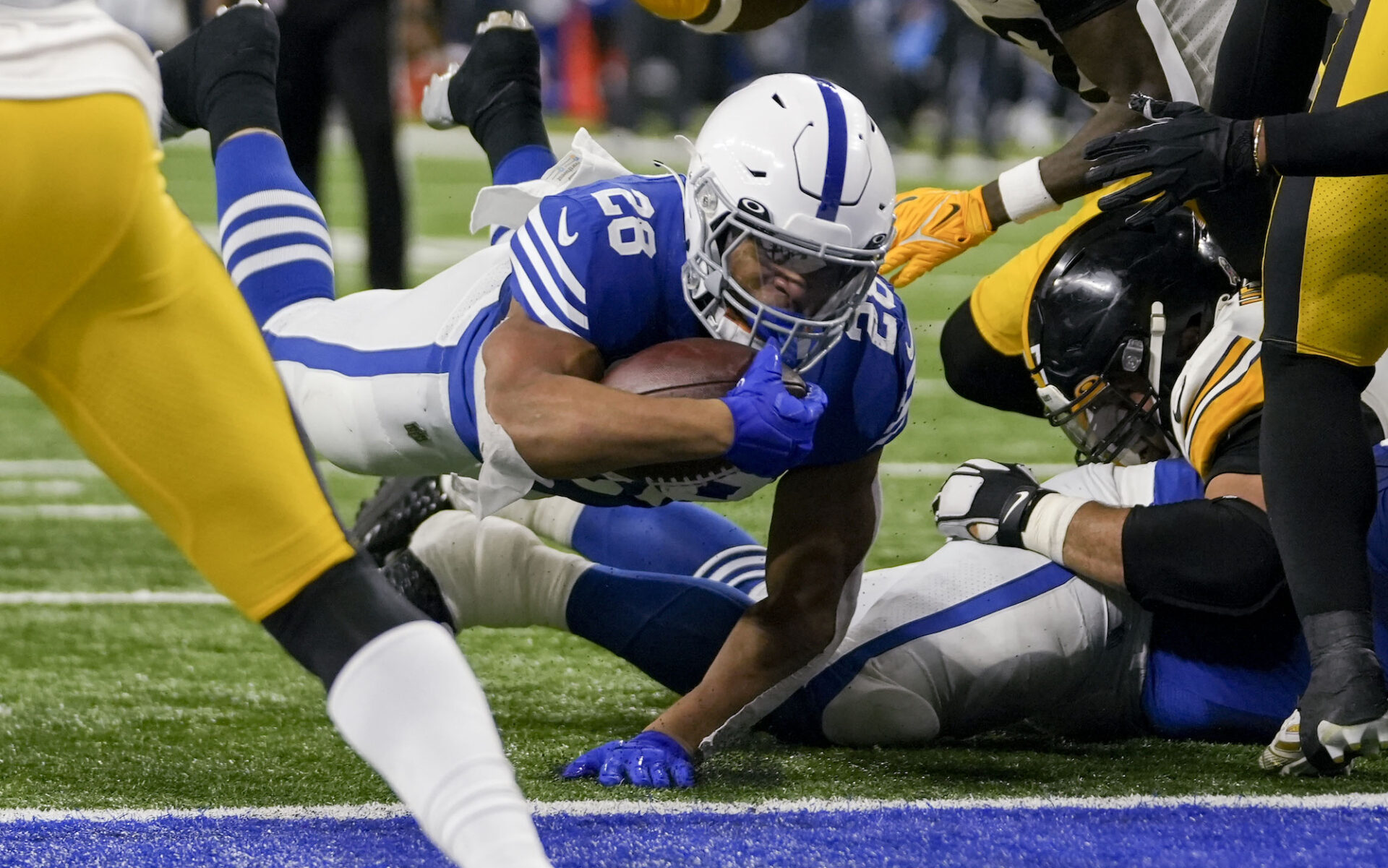
Market Forces Come into Play
The other issue Jonathan raised is that the free-agent market, working within the system, has devalued the running back position in terms of compensation. There are many reasons for that. Two apply directly to Taylor.
Featured and talented running backs generally have a heavy workload that includes contact on almost every play. Statistically and practically, they have short careers. In addition, because of the high contact they incur, they often sustain injury. Taylor fits both descriptions, which will factor into his future contracts.
Moreover, the NFL free agent market follows what is called pattern bargaining. The last running back signed becomes the benchmark for the next one to negotiate. When that market falls precipitously, as in this year’s free-agent signing period, it resets the jumping-off point for all future running back negotiations.
This is not a pleasant issue to deal with. Irsay, who at another time was a GM, and Ballard respect and care for their players, as did I when I was a GM. The NFL, however, is a business, the economics of which are governed by the CBA. Agents are always trying, by whatever tactic necessary, to circumvent the agreement for their own purposes. No matter how publicly unpopular it may be, owners and GMs must hold the line to maintain the integrity of the system as set forth in the CBA.
At the outset, I called this a garden variety dispute. Hopefully, as most do, this disagreement will end shortly and well.
Taylor is a player and a person we should all root for. I hope he has a great year and gets a terrific contract as a free agent next spring.
As told to Vic Carucci
Bill Polian is a former front office executive and a six-time Executive of the Year award winner who won Super Bowl XLI with the Indianapolis Colts. Polian’s career as an executive earned him an induction into the Pro Football Hall of Fame in 2015.



